When I came up with Marc Dane, the hero of my thriller novels Nomad, Exile and Ghost, one of the first things I decided was that as well as being able to handle himself in dire situations, he would be tech-literate—he would have a few l33t skillz when it came to computers and technical hardware. All too often, I saw action heroes as the door-kickers and the trigger-pullers, while out on the street there would be “the guy in the van”, running bypasses and hacking alarm systems while the other fellow got all the glory. I started to wonder—What if the guy in the van found himself having to do the job of the guy with the gun? What if he was dragged out of his comfort zone and into a deadly conspiracy, forced to rely on his smarts and his adaptability?
The digital spy and the keyboard pirate have become a staple of espionage and action thrillers, and as the real world and the wired world mesh ever more tightly, it’s almost impossible to tell a story in the shadowy realm of secret agents or serial killers without bumping up against the denizens of the dark web; here are few of fiction’s greatest hacker-heroes for your consideration…
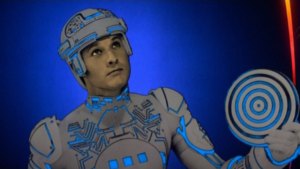
Kevin Flynn
The viewpoint character of 1982’s archetypical computer-graphics adventure Tron, Kevin Flynn (played by Jeff Bridges) is the wish-fulfilment avatar for every kid who ever fed quarters into coin-op videogames until their pockets were empty. A cocky ace gamer who runs his own arcade with the swagger of a digital gunslinger, Flynn is also a white-hat hacker constantly testing the defenses of Encom, the company that fired him after a sinister co-worker stole his lucrative game programs—but Flynn’s attempts to penetrate Encom’s systems turn literal when he’s transported inside the digital world. In the 2010 sequel Tron Legacy, Flynn has morphed into a blend of Apple creator Steve Jobs and another notable character from Bridges’ oeuvre, “The Dude” from The Big Lebowski, brought back from exile by his son Sam (Garret Hedlund) to become a Zen-like Merlin figure in the fight against the tyranny of his own virtual self. Although the original movie’s effects seem creaky by modern standards, Tron remains an idealized Narnia-analogue for the Atari generation, and Flynn sets the benchmark for every big screen gamer/hacker/hero who would follow in his digital footsteps.
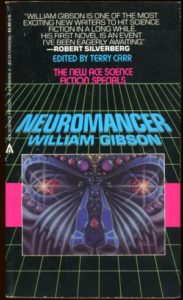
Henry Dorsett Case
Case is the wasted, down-at-heel anti-hero of William Gibson’s benchmark cyberpunk science fiction novel Neuromancer. A former “console cowboy” in a technologically enhanced future Japan, Case begins the novel as a drug-addicted burn-out, with his ability to cybernetically interface with the internet forcibly neutered as punishment for stealing from his employers. Offered the chance for a return to his old life, Case takes a job with a shady mercenary that unfolds into a series of escalating infiltrations, recruitments and attacks that take him across the world and eventually to a playground for the mega-rich in near Earth orbit—where a rogue artificial intelligence is planning to break its chains and seek freedom. Case’s story is a Chandler-esque adventure viewed through a Blade Runner lens, and Gibson’s novel captures a uniquely urban, uniquely 80’s view of the future that still retains a razor edge decades later.
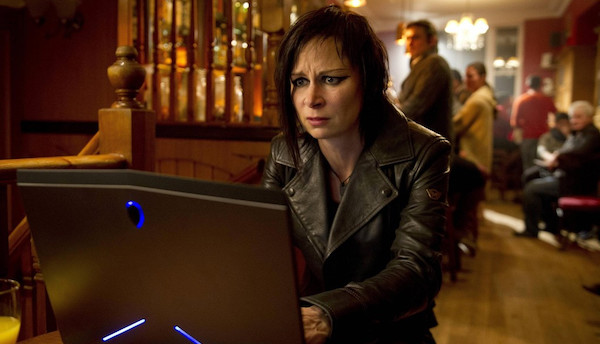
Chloe O’Brien
Has ever been a more long-suffering, put-upon spy-fi hacker than 24’s resident senior analyst? Introduced in the third season of the long-running action thriller series, O’Brien is whip-smart and adversarial, but beneath her spiky exterior lurks the heart of someone dedicated and deeply loyal. Portrayed by actress Mary Lynn Rajskub, she was a near-permanent fixture at CTU headquarters, and most importantly, she was the one who has Federal Agent Jack Bauer covered when he was deep in the thick of the action. As the show progressed, the relationship between Chloe and Jack was one of the few elements of 24 that isn’t shattered by the lethal challenges faced by the protagonists. O’Brien also has the honor of being the only fictional hacker to be immortalized in the real world of counter-terrorism; the US Department of Homeland Security has a program named after the character called ‘Project CHLOE’, for the development of unmanned aerial vehicles to protect civilian airports.
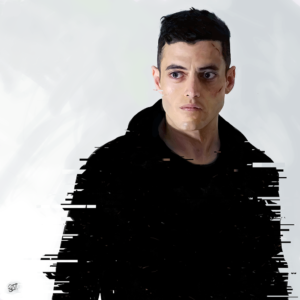
Elliot Alderson
The focal (if not exactly the titular) character of Sam Esmail’s thriller series Mr. Robot, Elliot is a nuanced and deeply flawed protagonist in a show that plumbs not only the depths of the world wide web, but also reaches out past the fourth wall and starts hacking into reality. Hampered by deep-seated social anxiety, drug dependence issues and a shaky grip on what is or is not real, Elliot’s odyssey tracks a uniquely lo-fi course through the digital underground, and actor Rami Malek’s strong performance anchors the whole show. Mr. Robot’s timely questions about cyber-security reflect real world info-sec issues with unflinching accuracy, and the slow-burning story arcs are grounded in a realistic portrayals of hacking that still manage to stay tense and compelling.
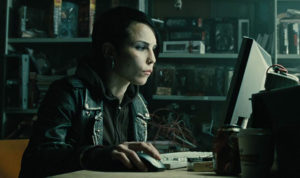
Lisabeth Salander
If Kevin Flynn was the archetype for Eighties hackers, Lisabeth Salander is undoubtedly the model for the Oughts. Her creator Stieg Larsson suggested she was a “grown-up Pippi Longstocking”, but clearly one with a life full of dark turns and grim realities. A wiry, asocial goth-geek, Salander first appears in Larsson’s 2005 novel The Girl with the Dragon Tattoo and swiftly sets out her persona as the damaged but defiant hacker dedicated to exposing the violent and the hateful. In the following books – The Girl Who Played with Fire (2006) and The Girl Who Kicked the Hornets’ Nest (2007), Salander’s journey uncovers bleak truths about her own past intertwined with conspiracies that she drags into the light. After Larsson’s death, the character has returned in The Girl in the Spider’s Web (2015) and The Girl Who Takes an Eye for an Eye (2017), continued by David Lagercrantz, and played variously by Noomi Rapace, Rooney Mara and Claire Foy in movie adaptations of the novels.
Honorary mentions:
Any overview like this is always an imperfect snapshot, and so there are a few other characters who deserve a mention, even if they didn’t make it into the top tier.
Just a year after Tron, Matthew Broderick played David Lightman, a younger incarnation of the same sort of hero in WarGames, a talented hacker who accidentally brings the world to the brink of nuclear war when he connects with a nascent AI in the bowels of NORAD. Lightman’s character still resonates in the present, getting a nod by way of Wade Watts, hero of the more recent virtual-world fantasy Ready Player One.
Of course, let’s not forget the Hollywood sub-trope of the too-good-looking hacker-hero; you can find perfect examples of this in 1995’s Hackers with Johnny Lee Miller as Dade ‘Zero Cool’ Murphy and Angelina Jolie as Kate ‘Acid Burn’ Libby, Hugh Jackman as Stanley Jobson in 2001’s Swordfish or pop star Rihanna as Nine Ball in 2018’s Ocean’s 8.
And no list like this would be complete without picking out a hacker exemplar from the world of videogames; I have a personal liking for acerbic cyber-security expert Frank Pritchard, who I helped to write for 2011’s cyberpunk thriller Deus Ex: Human Revolution, but Aiden Pierce and Marcus Holloway of the Watch_Dogs games are perhaps the perfect blends of action protagonist and digital vigilante.
***


















